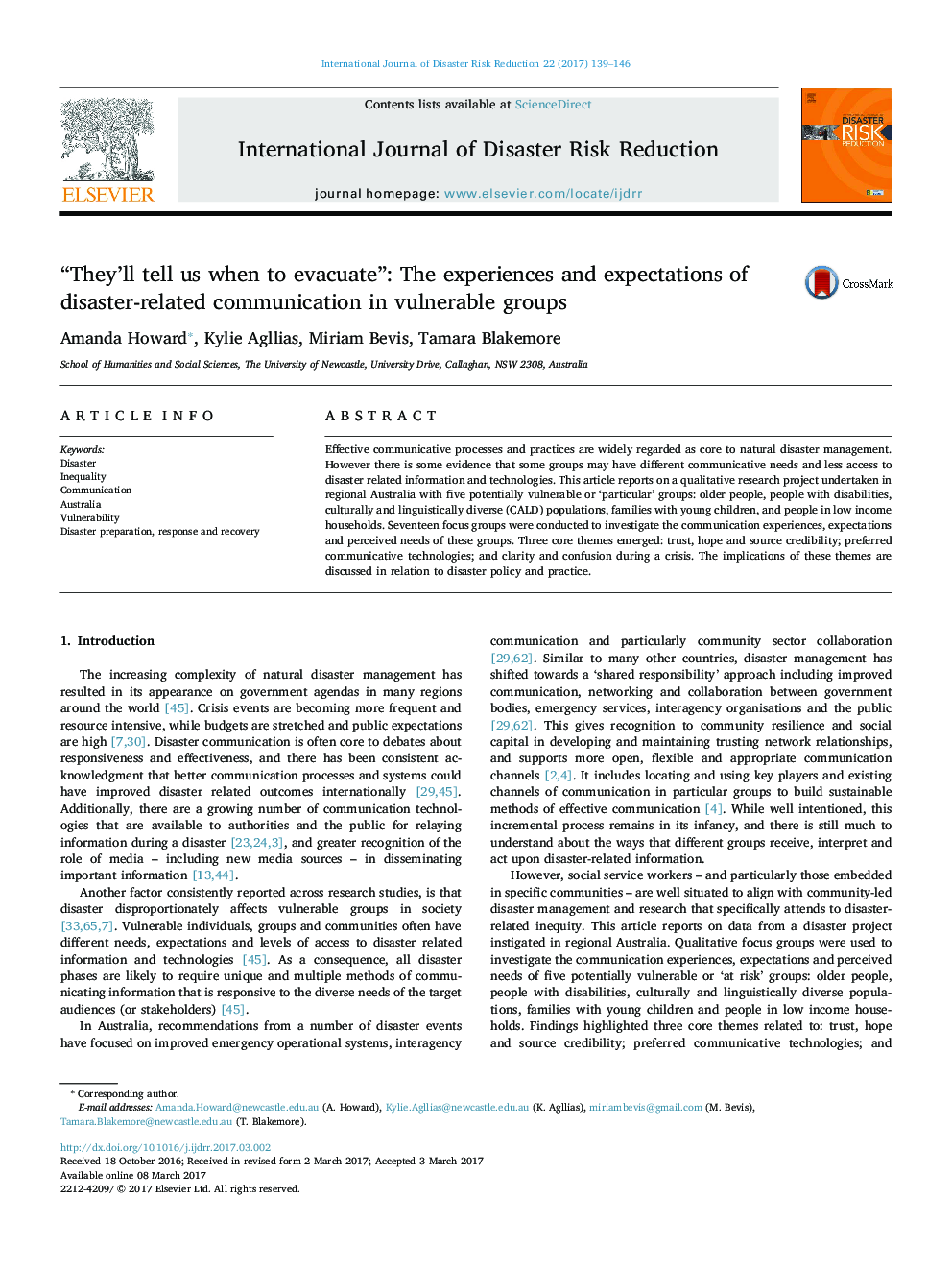| Article ID | Journal | Published Year | Pages | File Type |
|---|---|---|---|---|
| 5116082 | International Journal of Disaster Risk Reduction | 2017 | 8 Pages |
Effective communicative processes and practices are widely regarded as core to natural disaster management. However there is some evidence that some groups may have different communicative needs and less access to disaster related information and technologies. This article reports on a qualitative research project undertaken in regional Australia with five potentially vulnerable or 'particular' groups: older people, people with disabilities, culturally and linguistically diverse (CALD) populations, families with young children, and people in low income households. Seventeen focus groups were conducted to investigate the communication experiences, expectations and perceived needs of these groups. Three core themes emerged: trust, hope and source credibility; preferred communicative technologies; and clarity and confusion during a crisis. The implications of these themes are discussed in relation to disaster policy and practice.
